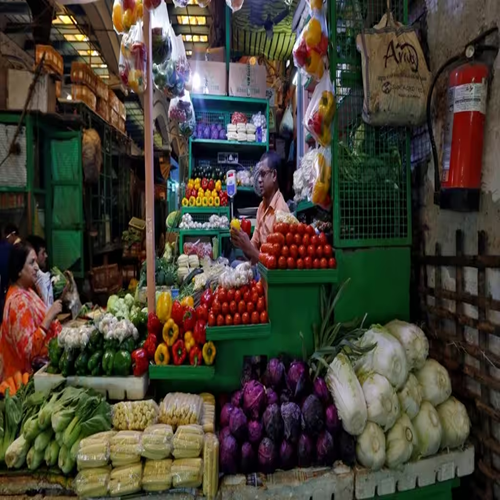Food inflation rises to 9.53% in December; Inflation in onion surges 74 per cent

Retail food inflation rose to 9.53% in December from 8.7% in November, as the base turned less favourable. However, the relevant consumer food price index (CFPI) last month recorded a sequential decline of 0.88%. Annual food inflation in December, 2022 was 4.19% on year.
Deflation in edible oils continued in December. In July, 2023, the consumer food price index rose 11.5% on year because of higher tomato and cereals prices, but it had declined in August and September to 9.94% and 6.62% respectively, with the softening of tomato prices.
Retail onion inflation rose by a steep 74.17% in December as prices of the vegetable in several cities touched Rs 90/kg forcing the government to impose ban on exports. Spike in onion prices was 86.46% in November on year because of delay in arrival of kharif crops and unseasonal rains impacting the crops in Maharashtra and Karnataka.
However, since the beginning of the this month, onion prices have softened which is expected to be reflected in the inflation figure for January, 2024. Inflation in pulses rose to 20.73% in December from 20.23% in November last year while arhar variety of pulses reported a price rise of 42%. Prices of other varieties of pulses – moong (13.09%), gram (13.75%) and Urad (13.29%) also rose last month.
Decline in production and robust demand are the key factors that contributed to the rise in pulses inflation, officials said. Overall cereals inflation last month dropped to 9.93% from 10.27% on year in November, 2023 because of some softening of wheat prices.
Inflation in wheat declined further to 4.69% in December from 6.36% in November on year because of improvement in supplies due to open market sale being carried out by the Food Corporation of India (FCI). The corporation has sold 6.2 MT of wheat in the open market through weekly e-auction so far since June and the government is aiming to sell 10 MT of wheat in the market by March.
Retail rice prices rose by 12.33% in December, higher from 11.81% in November. The government has banned exports of white rice and imposed 20% export duties on par-boiled rice to improve domestic supplies.
“Outlook for the inflation for certain items like rice, wheat and pulses remains somewhat vulnerable, given the estimated fall in annual kharif production, as well as the year-on-year lag in the ongoing rabi sowing season amid El Nino conditions,” Aditi Nayar, chief economist, ICRA said.
The inflation in ‘spices’ dropped marginally to 19.69% last month from 21.5% in November. Jeera (cumin seeds) prices rose sharply by 114%. Global and domestic supply constraints have pushed up jeera prices sharply since the beginning of the year.
Mustard oil and refined oil prices dropped sharply by 19% and 23% respectively last month on year while overall inflation in oils and fats category declined by 14.96%.















